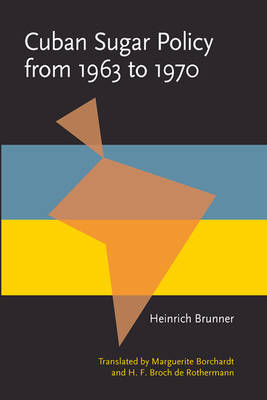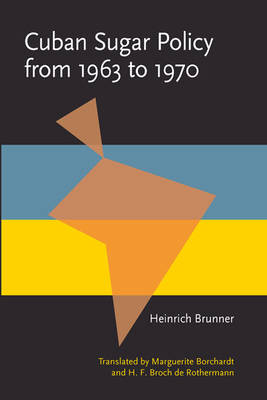
Onze Vivlio e-readers ondervinden momenteel synchronisatieproblemen. We doen er alles aan om dit zo snel mogelijk op te lossen. Onze excuses voor het ongemak!
- Afhalen na 1 uur in een winkel met voorraad
- Gratis thuislevering in België vanaf € 30
- Ruim aanbod met 7 miljoen producten
Onze Vivlio e-readers ondervinden momenteel synchronisatieproblemen. We doen er alles aan om dit zo snel mogelijk op te lossen. Onze excuses voor het ongemak!
- Afhalen na 1 uur in een winkel met voorraad
- Gratis thuislevering in België vanaf € 30
- Ruim aanbod met 7 miljoen producten
Zoeken
Cuban Sugar Policy from 1963 to 1970
Translated by Marguerite Borchardt and H. F. Broch de Rothermann
Heinrich Brunner
€ 35,95
+ 71 punten
Omschrijving
In 1963 Cuba launched a program to develop its economy by expanding its sugar production and export trade. Cuban economists believed that through intensive development of this leading sector, they could generate capital to invest in manufacturing and thus move away from a one-crop economy. After providing background information on Cuba's prerevolutionary economy, Brunner explores the effects of Communist ideology and the U.S. embargo on the country's resources and trade, and analyzes the problems Cuba faced in shifting from trade with the U.S. to trade with the Soviet Union and Soviet bloc. He evaluates their implementation of the development plan, assessing the sugar industry within Cuba as well as how its accelerated development affected the rest of the domestic economy.
Specificaties
Betrokkenen
- Auteur(s):
- Uitgeverij:
Inhoud
- Aantal bladzijden:
- 176
- Taal:
- Engels
- Reeks:
Eigenschappen
- Productcode (EAN):
- 9780822984603
- Verschijningsdatum:
- 15/03/1977
- Uitvoering:
- Paperback
- Formaat:
- Trade paperback (VS)
- Afmetingen:
- 152 mm x 229 mm
- Gewicht:
- 267 g

Alleen bij Standaard Boekhandel
+ 71 punten op je klantenkaart van Standaard Boekhandel
Beoordelingen
We publiceren alleen reviews die voldoen aan de voorwaarden voor reviews. Bekijk onze voorwaarden voor reviews.











